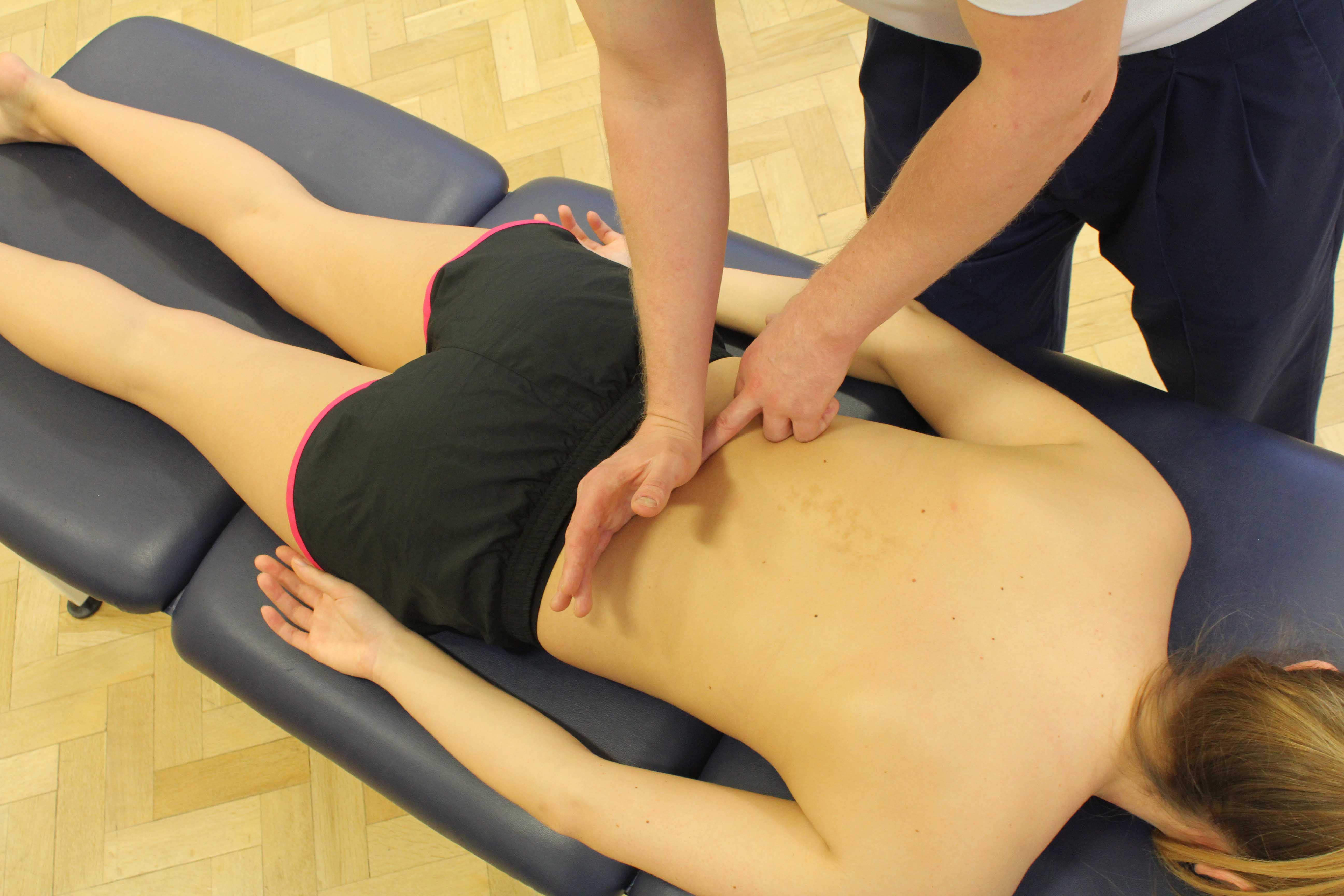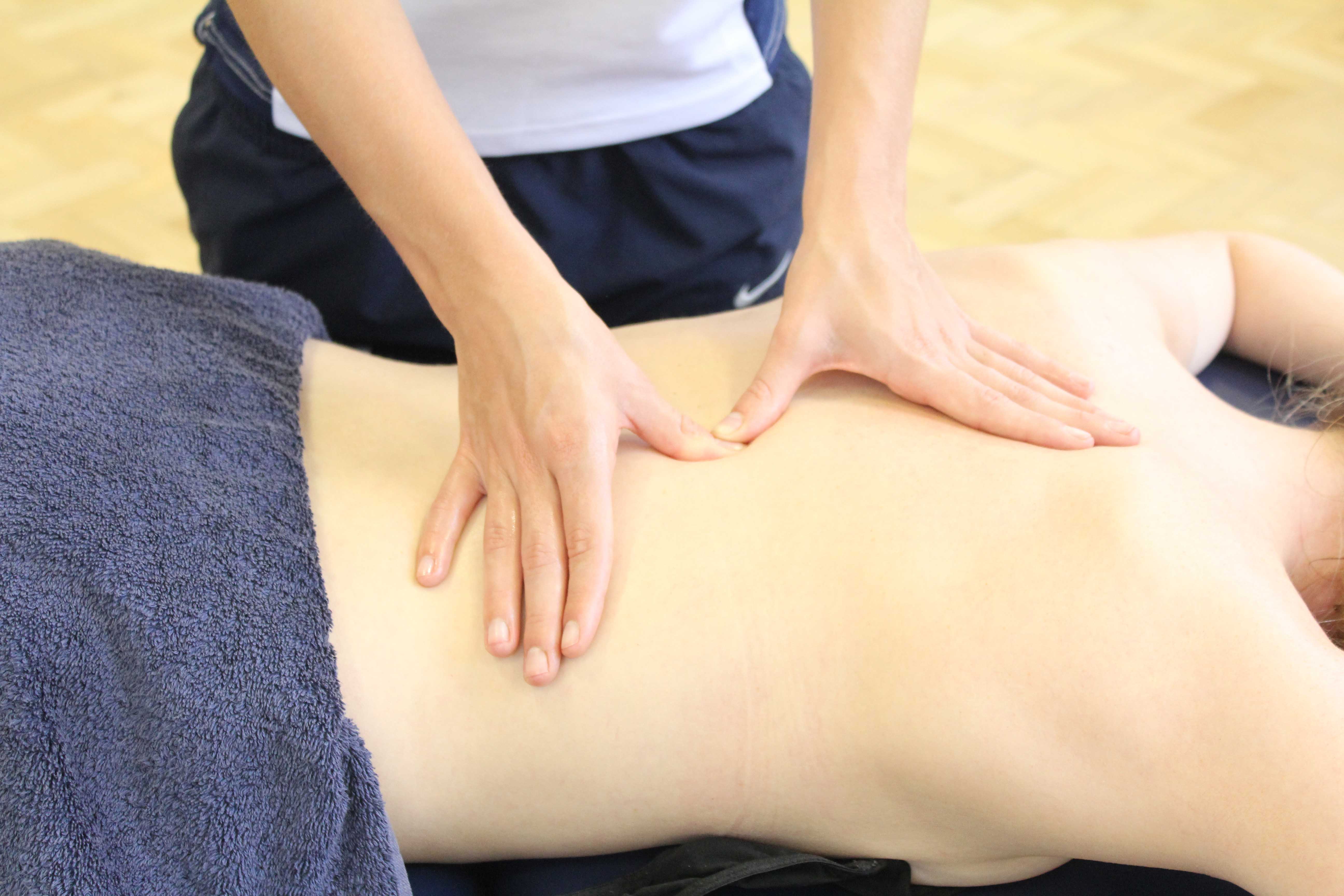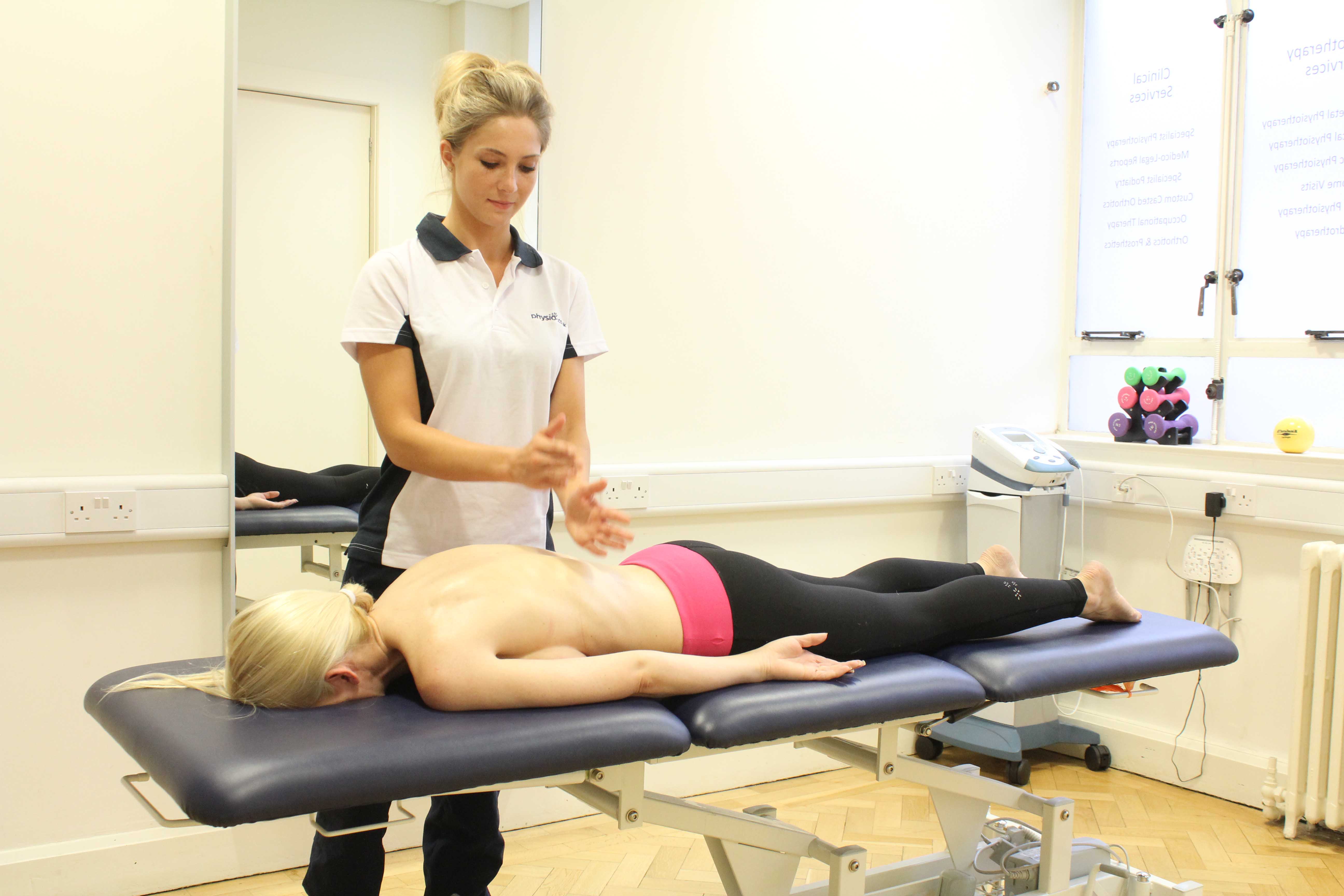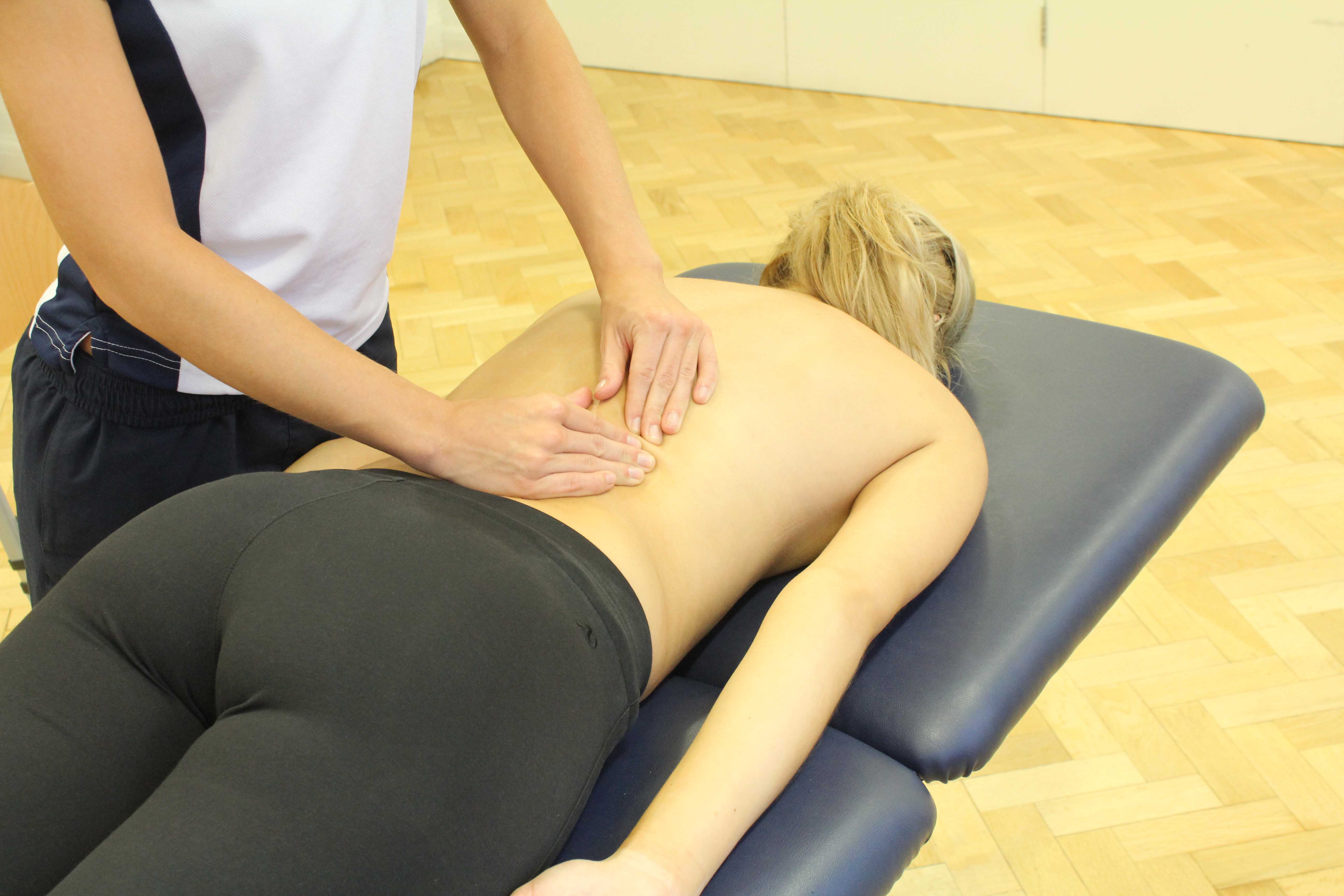What is a fractured vertebrae?
A fractured vertebra is a break in one or more of the twelve bones (vertebrae) of the thoracic spine (upper back). This can be very serious if more than one vertebra is fractured as it will severely impact on your movement normal activities of daily living. The most serious injuries are those that have caused damage to the spinal cord as this can have a very disabling impact and a long recovery. The thoracic vertebrae are also in close proximity to nerves and a severe break may disrupt these nearby nerves or blood vessels causing further injury. Physiotherapy is a very effective treatment for a fractured vertebra.
 Above: mobilisations of the upper thoracic spine by experienced physiotherapist
Above: mobilisations of the upper thoracic spine by experienced physiotherapistWhat can cause a fractured vertebrae?
There are number of possible causes of fractured vertebrae in the thoracic spine. The most common causes include falling from a great height, road traffic accidents and a direct trauma such as a gunshot or stab wound.
What are the symptoms of a fractured vertebrae?
The symptoms of a fractured thoracic vertebra depend on the severity of the injury. You will probably experience sudden and intense pain in the upper back area followed by bruising and swelling. You may experience a loss of sensation and weakness in the arms, chest and upper back temporarily. If the spinal cord has been damaged, there will be paralysis and numbness below the level of the break and a specialist doctor will be able to determine whether this is temporary or permanent. If the spinal cord has not been damaged, you will find it difficult to move the area without pain and discomfort. Other symptoms of a fractured vertebra include:
What should I do if I have a fractured vertebrae?
A fractured vertebra in the thoracic spine is a serious injury and you should visit your nearest accident and emergency department as soon as possible. Medical professionals will then carry out an X-ray and possibly a MRI scan to determine the extent of the injury. This will help them decide on the best treatment options for you. The results of the X-ray will highlight whether the fracture is stable or unstable. Stable fractures are much less serious and you will be able to begin physiotherapy and gentle movements immediately. If the fracture is unstable, you will be immobilised in a hard back brace known as a halo for a minimum of six weeks. Surgery may be advised in very severe cases and if there has been damage to major nerves or the spinal cord.
 Above: Trigger point massage of upper back muscle
Above: Trigger point massage of upper back muscleWhat shouldn’t I do if I have a fractured vertebrae?
Do not ignore the symptoms if you suspect you have fractured a thoracic vertebra. You should avoid moving the area until you have an accurate diagnosis from the hospital as this may cause further damage.
Physiotherapy for a fractured vertebrae.
The orthopaedic consultant will advise when you can begin your physiotherapy programme. You will be provided with a home exercise programme including range of movement and strengthening exercises and specific activities to help you return to your hobbies and/or sport.
Other treatment options include:
 Above: mobilisations of the mid thoracic spine
Above: mobilisations of the mid thoracic spineCan a fractured vertebrae have any long-term effects?
If you seek medical advice straight away, then it is likely you will be able to return to your normal active lifestyle without any long term complications. However, if the fracture is more severe, the recovery will take longer and may impact on your activities of daily living. Physiotherapy can help with both options by providing an active rehabilitation.
To arrange a physiotherapy appointment call Physio.co.uk on 0330 088 7800 or book online.
 Above: Mobilisations of the thoracic spine by an experienced physiotherapist
Above: Mobilisations of the thoracic spine by an experienced physiotherapist
 0330 088 7800
0330 088 7800


































